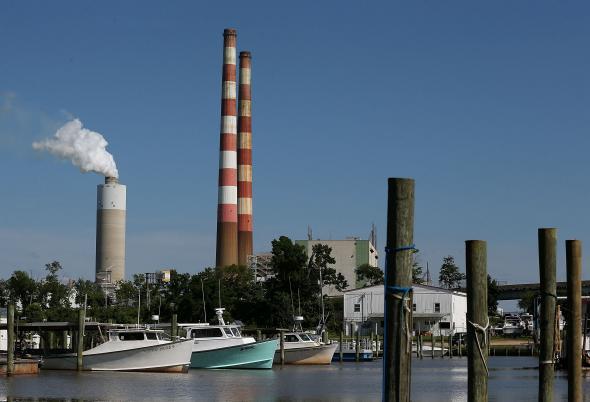The Supreme Court ruled Tuesday to temporarily halt the Obama administration plan to impose federal regulations on coal emissions from power plants, which is part of a broader effort to combat climate change. The 5-to-4 vote, along partisan lines, means that the Environmental Protection Agency regulations, part of a transformative plan to shift the American power grid to cleaner sources, will be put on hold until legal challenges to the Clean Power Plan can make their way through the courts.
“The plan was designed to lower carbon emissions from U.S. power plants by 2030 to 32 percent below 2005 levels,” according to Reuters. “It is the main tool for the United States to meet the emissions reduction target it pledged at U.N. climate talks in Paris in December.” A coalition of coal-producing states and the coal industry is opposing the deal as federal overreach. Here’s more from the New York Times:
The states challenging the regulation, led mostly by Republicans and many with economies that rely on coal mining or coal-fired power, sued to stop what they called “the most far-reaching and burdensome rule the E.P.A. has ever forced onto the states.” A three-judge panel of the United States Court of Appeals for the District of Columbia Circuit in January unanimously refused to grant a stay… The states urged the Supreme Court to take immediate action to block what they called a “power grab” under which “the federal environmental regulator seeks to reorganize the energy grids in nearly every state in the nation.” Though the plan’s first emission reduction obligations do not take effect until 2022, the states said they had already started to spend money and shift resources to get ready. Eighteen states, mostly led by Democrats, opposed the request for a stay, saying they were “continuing to experience climate-change harms firsthand — including increased flooding, more severe storms, wildfires and droughts.”
The Supreme Court’s willingness to intervene in the case is an ominous sign for supporters of the plan as it suggests there are significant doubts about its legality among the conservative majority of the justices.
